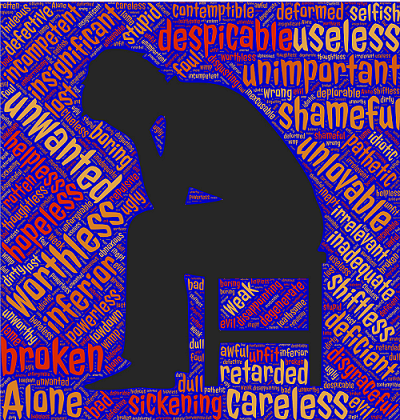

Someone with OCD may have any type of obsessive thought. These types of OCD are really just groupings of some of the most common symptoms. Any type of compulsive behavior may follow, but this kind of obsession can also lead to isolation, as a person may avoid being around others. Some people may worry about shouting something in public, while others may be worried about harming someone, which ties into the aggressive or sexual type of obsessions. A fear of losing control and doing something inappropriate characterizes many individual experiences with OCD. They may also have specific superstitions about numbers, patterns, and symmetry. People with these thoughts spend an inordinate amount of time arranging and ordering objects or visualizing symmetry.

Having objects ordered “just so” is a fairly common type of obsession with OCD. They may use prayer compulsively or ask for forgiveness over and over again.

Some people worry obsessively about being immoral or sinning. This type of obsessive thought usually triggers compulsive checking behaviors, like going back to the door multiple times to be sure it is locked. An example might be someone who doubts they have locked the door when leaving the house. OCD can cause recurring thoughts that a person hasn’t done something correctly or completely. Compulsive hand-washing and cleaning are also typical. Many people diagnosed with OCD are afraid of germs or other types of contamination and may avoid situations and activities because of this fear. A fear of germs and a need to wash hands compulsively is often what people associate with OCD, and it is a common feature. Compulsive behaviors could be anything but are often used to prevent the harm from occurring. For instance, someone may obsess over the thought that their child will get hurt in a car accident. For some people, the fear is not necessarily that they will harm someone but that some type of harm will come to their loved ones. These types of obsessions are often coupled with seeking reassurance of one’s goodness, but there may be other accompanying compulsions.

These kinds of thoughts may also be sexual, such as fearing behaving in a sexually inappropriate way or experiencing recurring, troubling sexual imagery. A common type of obsession is related to a fear of causing harm to others, of lashing out violently, or having violent, aggressive images that won’t go away. Someone with OCD could potentially have any type of obsessive thoughts or any compulsive behavior, but these categories are seen most often: However, there are common symptom categories that can be described as “types.” These are based on similarities in the content of the obsessive thoughts and the actions a person takes to cope with them. There really aren’t any types of OCD, technically speaking. Like obsessive thoughts, a person with OCD really struggles to control these behaviors, and even when they realize they are not logical, and feels compelled to engage in them. There is often no logical connection between the compulsions and the thoughts, but sometimes they are related, such as when someone afraid of germs washes his or her hands compulsively. These thoughts, whatever the specific content, are not reasonable and yet they are nearly impossible to control.Ĭompulsive behaviors are actions that a person takes to try to alleviate the distress of obsessive thoughts, to stop the thoughts, or to prevent something bad from happening. The content of the obsessive thoughts can be anything, from a fear of being contaminated with germs to violent images that won’t go away or a persistent doubt that a task has been completed. They are nearly impossible to avoid or stop, and they cause significant distress, anxiety, or fear. Obsessive thoughts are persistent, unwanted, and troubling. Furthermore, the symptoms have to cause distress, significant impairment, and take up a lot of a person’s time. To be diagnosed with the condition, a person must have one or both of these. OCD, or obsessive-compulsive disorder, is a mental health condition characterized by two types of symptoms: obsessive thoughts and compulsive behaviors.


 0 kommentar(er)
0 kommentar(er)
